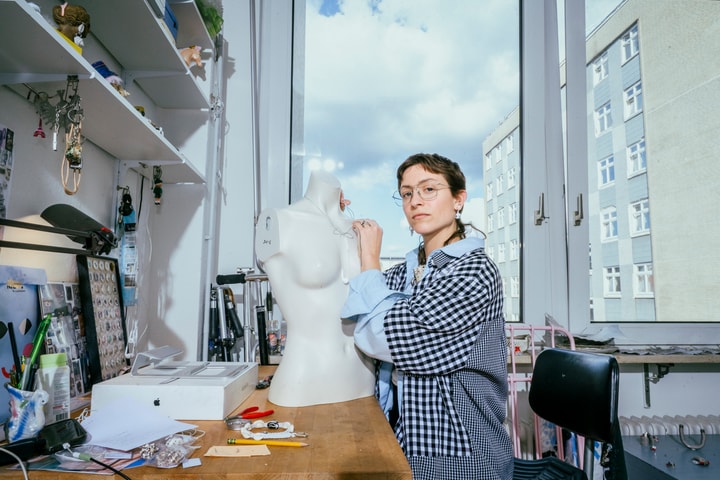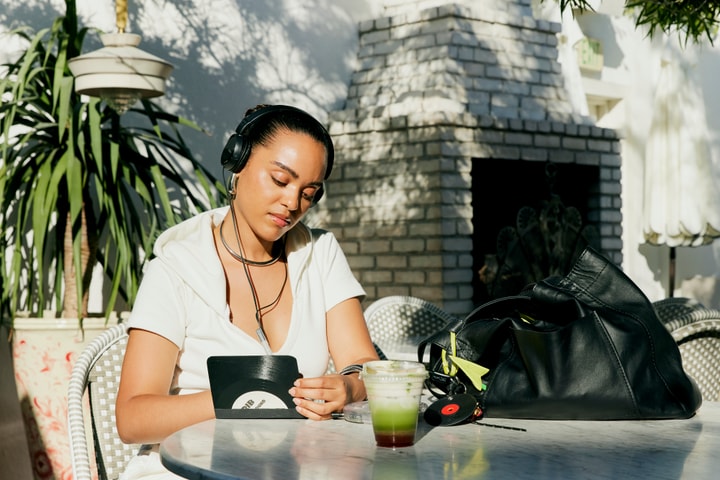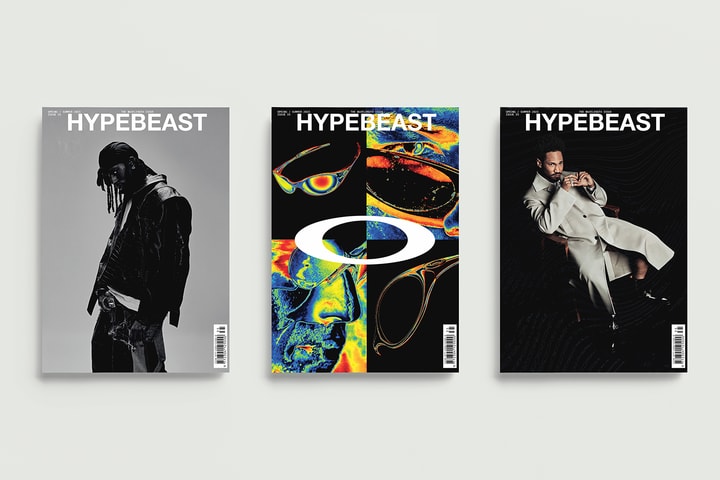This interview was originally posted on HBX Journal CN.
Located in South West China and home to 120 million people, the region of Sichuan is fast becoming the epicenter of Chinese rap music in the past decade. From the early years when Xie Di's “老子明天不上班 No Work Tomorrow" first attracted nationwide attention to the region, to the current wave of Trap music led by Higher Brothers, and the emergence of next-generation collectives like Digi Ghetto, the marriage of Sichuan dialect and high-tempo 808 drum beats has become an integral part of the modern Chinese music landscape.
As one of the key emerging prospects from Chengdu in the past few years, Xinwenyue Shi is in his own lane reinterpreting Bashu (Sichuanese) culture. In 2020, he gained national repute after appearing on the show "Rap New Generation," sharing the stage with the likes of Masiwei & Rich Brian. Instead of following in the footsteps of his predecessors, Xinwenyue Shi combines the grassroots ethos of Chengdu culture, in which he was immersed in while growing up, with the overseas perspective he garnered while studying in Boston, to create a highly personal expression that has since been christened as "Bashu Renaissance."
Shirt: Y-3
Since the release of his second album Bashu Renaissance: Chapter 2 in 2023, Xinwenyue Shi has been approaching his craft with the ultimate expression of creative freedom. The near 30-minute album invites listeners on a journey to a day in the life of Chengdu, sampling the vocals of elderly dancers in the park of Wangjiang, recordings of traditional Chinese instruments like guzheng, and more fragments of ambient cityscape sounds. By reinventing Western music in a domestic way, Xinwenyue Shi's work evokes great resonance for local listeners.
HBX links with the artist for a day in Chengdu, as we delve into the creative universe of the self-titled Duke Wangjiang – from his earliest impressions of hip hop music, the significance of “less is more” in music creation, insights on making merch, and approaching personal style.
What was your earliest musical experience that sparked your interest in rap?
I first came into contact with rap music around 2003, thanks to a Sichuanese musician named Liao Jian. His song "Sufen" was very popular in Chengdu at the time. Liao Jian was one of the firsts in Sichuan to rap in the local dialect, and was also a fashion pioneer at the time, as he was rocking a baseball cap and aviator jacket on the album cover.
When I first went to the United States for school, I listened to a lot of mainstream rap artists. But after listening to them for a while, I realized that I actually preferred more relaxed music. A British producer named Mura Masa was my earliest influence in music production. He inspired me to try creating fusion and healing works.
There is always a warm feeling in your music and visuals. Is that the listening experience you've always sought in your creative process?
The core of my music has always been warmth and hope. Nowadays, many people like to talk about controversial topics in their lyrics but for me, I want to document the beautiful moments in my memories. My songs depict the wonderful experiences in life, such as square dancing, grandpas skating at the provincial sports center, and the sound of motorbikes. Ultimately, it's about love, and I think that's the most important thing.
In addition, a sense of humor is essential in any good music project. The music I love, whether it's electronic music from the 90s or jazz musicians and their analog recordings, always attracts me with its sincere expression. This humor doesn't necessarily have to make people burst out laughing; it can be a resonant feeling that brings a knowing smile. If you take yourself too seriously and make too much of an effort to make your point, people may not necessarily be receptive to it.
Shirt: Raf Simons
How has traditional Chinese music influenced your creative process?
When I create, I want to focus on the fusion of Western elements and Chengdu local flavor, bridging the best of two worlds. It's a process of mutual balance. To use a cooking metaphor, if you add too many Western elements, it may turn into American-style Chinese food like General Tso's Chicken. On the other hand, if it's too localized, it may become home-style dishes, which is not exactly my style either.
From Bashu Renaissance: Chapter One in 2021 to the recently released Bashu Renaissance: Chapter Two, what is the biggest change in the new album?
In the latest Chapter Two, I’m using a first-person perspective to document the stories of people around me. There aren't any A-list musicians featured in the album – all the people involved in the creation are my closest friends or neighbors. I consciously reduced the lyrical composition in the music and left more space for instrumentals and samples, so it’s a more direct expression of the life experiences I wanted to capture.
Previously you always performed as a solo act but in this tour, we see you teaming up with Yulin Ensemble for the first time. How did you come up with the idea of performing with a band?
Performing alone is a more direct process. Once an instrumental starts playing, I take no pauses. But this time, touring with a band allows for more improvisation and a more musically expressive way of presenting my work, giving the audience an offline-only listening experience different from the album. I want to capture more interactions during live performances, through the interactions between me and the band, between guests musicians and the band, to encourage engagement between the stage and the audience.
You have put a lot of effort into merchandise production. From hats, T-shirts, bracelets, vinyl records to tote bags, it's evident that you've incorporated a lot of your creativity. Which ones are you most satisfied with at the moment?
I'm definitely most satisfied with the hats and bracelets. The hats were made by me and my friend Jackson. Inspired by New York Yankees hats, we created a style with a shorter brim. I chose a green/off-white color combination with a gold logo embroidery that embodies visuals from my albums.
The bracelets were also designed by me. Just like my music creation, I know what effect I want to achieve, and I'm very pleased with the final results.
Do you often encounter creative blocks in your daily life? What do you do when you lack inspiration?
Absolutely, especially when facing "writing prompts." I choose to pause and slow down the pace, go out for a bike ride, or visit my grandpa for a change.
Shirt: Raf Simons, Pants: SASQUATCHFABRIX.
The older generation appears frequently in your visual recordings. How have the Chengdu elders influenced your approach to fashion?
To me, they are the ones who truly "wear clothes." They don't care about brands, trends, or styles. They focus on functionality and serve the purpose of clothing, rather than being "worn by clothes." For me, this is the true meaning of styling.
How would you describe your personal style? What qualities do you value when selecting clothes?
I now focus more on whether the clothes align with my personality. I always want to tell my own story, and clothing is also a part of that. If the brand's symbols are too strong, it might overshadow what I want to express. Many fashion trends today tend to be superficial, chasing popularity and attention, but they may not suit everyone. I choose basic pieces with classic designs that serve my own style.
At the same time, the fit is also crucial. If the clothes I wear don't fit well, the roles of the person and the clothes are reversed, and observers can directly feel it.
What is the most coveted item you've recently purchased?
The most coveted item I recently purchased is a red and blue plaid Burberry coat. It's a statement piece that might not be suitable for everyday wear but for me, the color combination of that coat is just right, with a hint of psychedelia and a warm feel.
Are you satisfied with your current creative state? What are your future plans for 2023?
I want to improve myself in production and songwriting, to accurately capture the glimpses of inspiration through more concise and powerful expressions. This requires accumulating more musical knowledge and creative experience. After the tour ends, I will focus on the next music project as a continuation of the Bashu Renaissance universe, and create better merch for my fans.


